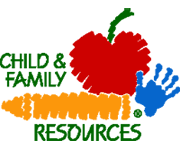 According to Child Care Aware of America, Child Care Providers help ensure their programs support children’s healthy growth and development. This is especially important in the event of a major disaster or emergency, as children are among our most vulnerable populations.
According to Child Care Aware of America, Child Care Providers help ensure their programs support children’s healthy growth and development. This is especially important in the event of a major disaster or emergency, as children are among our most vulnerable populations.
Child Care Providers can be a critical service needed to help protect the safety of children and support the stabilization of families after a disaster.
Child Care Providers can prevent children from being left alone or in unsafe environments and can help expedite recovery efforts by ensuring that children are safe while parents visit damaged property, access public benefits, and make other efforts to rebuild their lives.
CLICK HERE FOR MORE INFORMATION
Emergency Preparedness Resources
CLICK TITLE TO VIEW WEBSITE
Office of the Administration for Children & Families
Emergency Preparedness Resources for Child Care Programs.
Child Care Resources for Disasters and Emergencies
US Department of Health & Human Services
Public Health and Medical Emergency Support for a Nation Prepared.
The NJ Department of Human Services
Hurricane Relief Information including links for water and ice distribution, emergency shelters and warming centers.
Morris County Office of Emergency Management
for storm recovery information including a list of places to make donations or receive assistance in Morris County, NJ.
DisasterAssistance.gov
DisasterAssistance.gov is a secure, user-friendly U.S. Government web portal that consolidates disaster assistance information in one place. If the President declares a disaster and designates it for individual assistance, you can apply for assistance at DisasterAssistance.gov. Currently, 17 U.S. Government agencies, which sponsor almost 60 forms of assistance, contribute to the portal. Local resource information to help keep citizens safe during an emergency is also available.
Federal Emergency Management Administration (FEMA)
FEMA offers disaster information, declared disasters, and emergencies; learn about the different types of disasters and hazards; maps; plan/prepare for hazards; protect your family and property; State and community plans; recover and rebuild; what to do after a disaster; emergency outdoor water sources; ways to purify water; how to cook without power. Find a checklist to help prepare now for sudden emergencies. FEMA also offers resources for helping children deal with disaster including a publication.
Child Care Aware of America
To support your organization and the families and providers you serve, we have posted a dedicated section on our website which contains a number of links to disaster and emergency resources that can support your recovery work.
Tools, Publications & Resources
Learn more about Child Care Aware® of America, how we work to advance the vision of high quality, affordable child care for all families that need it, or more about our funders and partners.
National Afterschool Association
Disaster Prepardness, Forms, Checklists and Resources.
HealthyChildren.org
Hurricane Disaster Fact Sheet from the American Academy of Pediatrics.
Teaching Strategies for Early Childhood
Helping Young Children Rebound After a Natural Disaster.
Mobile Insurance Claims
Some insurance companies are offering claims processing at mobile catastrophe units located through the state. These locations provided an additional alternative for residents to file their insurance claims besides the typical routes such as through one’s insurance agent or via telephone. This list will constantly change, so please check back to see if additional companies or locations have been added.
The American Academy of Child and Adolescent Psychiatry’s Disaster Resource Center
This website provides an overview of children’s reactions to disasters, how to talk with children about a disaster, and when to be concerned about a child’s response, including potential signs of PTSD in children.
Talking to Children About Earthquakes
This list provides suggestions for how to talk to children about natural disasters.
Recovery After a Hurricane
This is a good basic overall resource for parents and caregivers about hurricanes, their impact on children and families, what parents, teachers and others can do to help children cope with hurricanes, as well as activities for children and adolescents. Please see the additional Description, Readiness, and Response tabs for additional information.
The National Child Traumatic Stress Network Manual of Psychological First Aid: Appendix E
This particular appendix consists of a series of handouts that cover possible adult reactions to disasters and inappropriate/appropriate coping mechanisms, parenting tips for helping specific age groups cope with disaster, and tips for adults regarding drug and alcohol use and relaxation in confronting disaster.
Emergency Management Virtual Tool Kit
Use the collaboratively developed federal Guide for Developing High-Quality School Emergency Operations Plans (School Guide) to learn key planning principles and the six-step planning process.
NJ Office of Emergency Management
The New Jersey Office of Emergency Management is currently working with the New Jersey Department of Education on plan updates. In the meantime, please visit http://www.nj.gov/education/schools/security/ for School Preparedness and Emergency Planning information.
Child Care of Aware® of America’s Geographic Information Services Weather Tracker
Child Care of Aware® of America’s Emergency Preparedness Team is always keeping an eye on the severe weather across the United States. By being prepared for severe weather, a child care provider can support children and their families before, during and after severe or inclement weather.
